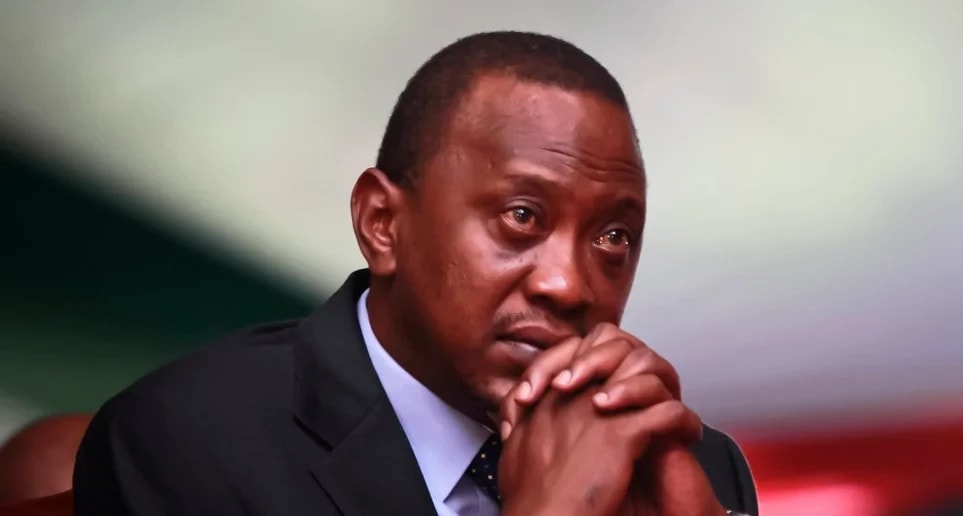Winning a second disputed election may have been the easy part for Kenyan President Uhuru Kenyatta.
Now he needs to tackle daunting economic challenges ranging from slackening growth and runaway government spending to an unemployment rate that tops 40 percent.
Kenyatta resoundingly won an Aug. 8 rematch of a 2013 contest against former Prime Minister Raila Odinga, who alleged he was cheated of victory. Opposition protests largely fizzled out over the weekend after a security crackdown and Odinga’s five-party coalition is still deciding whether they will challenge the results in court.
East Africa’s largest economy boomed during most of Kenyatta’s first term, expanding an average of 5.7 percent a year as it benefited from new road and rail links and lower fuel costs.
Now a drought and slowing bank lending are taking their toll on growth and tax revenue, making it harder for the government to service the loans it took out to finance the new infrastructure and simultaneously meet a pledge to uplift the half of the population of 47 million who survive on less than $2 a day.
“The immediate priority for the government will be to do more to support growth in the near-term, while still setting out a meaningful fiscal consolidation path,” said Razia Khan, chief Africa economist at Standard Chartered Plc, in London. “The debt is sustainable, so long as there is growth. Weaker trend growth can very easily push the public debt to less sustainable levels.”
The government forecasts gross domestic growth at 5.5 percent this year, down from 5.7 percent in 2016. The expansion rate eased to a three-year low of 4.7 percent in the first quarter.
Deepening Debt
The ratio of public debt has burgeoned to about 54 percent of GDP, from less than 40 percent eight years ago, while the budget deficit exceeds 10 percent of GDP.
Kenya’s economic expansion may come under further pressure because large parts of the economy ground to a halt during the election, which was marred by violence. The opposition said more than 100 people were killed by the security forces, while the Kenya National Commission on Human Rights put the death toll at 24. The police denied both claims.
The financial markets have shrugged off the prospect of ongoing turmoil, with the yield on Kenya’s $2 billion Eurobond due 2024 falling 25 basis points to 6.34 percent since the day before the vote and the shilling remaining stable against the dollar.
The country is the world’s largest shipper of black tea and a regional hub for companies including Google Inc. and General Electric Co.
The rapid increase in Kenya’s levels of indebtedness is “really worrying” and will weigh on Kenyan assets, especially if growth slows more than anticipated, said John Ashbourne, Africa economist at Capital Economics Ltd. in London.
‘Less Optimistic’
“I don’t think that demand will dry up, or that investors would totally lose interest, but I do think the developing debt story will play a role in making people a bit less optimistic,” he said.
While Odinga had pledged to cut the fiscal deficit to less than 3 percent of gross domestic product, austerity didn’t feature in Kenyatta’s election manifesto — he undertook to invest more in infrastructure, expand access to free health care and education and create 1.3 million more jobs a year.
The new government “will be faced with the dilemma of fulfilling election promises at a time when the fiscal deficit absolutely has to be reined in,” Lisa Brown, a risk analyst at Johannesburg-based Rand Merchant Bank said by email. “With many debt repayments due over the next two years, there will be increasing scrutiny on Kenya in the bond and currency markets.”
Khan said there are several options open to the government to shore up the economy, including reviewing a cap on commercial interest rates that was imposed in 2016 and has choked off lending.
The ceiling was set at 400 basis points above the central bank’s rate to lower borrowing costs, against the advice of the central bank and the Treasury.
Mark Bohlund, Africa economist with Bloomberg Intelligence in London, said Kenyatta has the scope to backpedal on his spending plans given that he intends stepping down in 2022.
“Fiscal consolidation is very much more in line with the priorities of a second-term president than one seeking re-election,” he said. “While Kenya is less fiscally constrained than peers such as Ghana and Zambia, the wide budget deficit still leaves it vulnerable to any economic downturn.”
Source: Bloomberg





